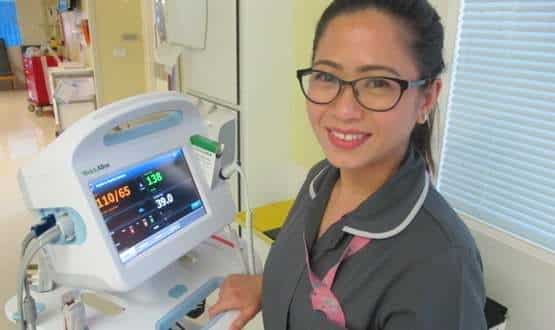CNIO says observations technology is a ‘win-win solution’
- 23 November 2017

A chief nursing information officer (CNIO) has said technology which digitally monitors patient observations provides a ‘win-win solution’ as it can save nurses thousands of hours a year.
Imperial College Healthcare NHS Trust, which is a Global Digital Exemplar (GDE), has installed Welch Allyn Connex monitoring devices in 14 clinical areas, supporting 243 beds across the trust.
The touch screen monitors, created by the American manufacturer of medical diagnosis devices, capture clinical observations such as blood pressure and temperature and then automatically transfers it to the trust’s electronic patient record system (EPR).
According to the trust, it can reduce the time required to input observations by up to 50% with over one minute saved each time.
CNIO of Imperial College and clinical lead for nursing informatics, Gerry Bolger told Digital Health News that this eliminates the need for nurses to manually enter patient data and could save them 5,800 hours annually.
“It’s a win-win solution,” Bolger said.
Bolger also said the release of nurses’ time will also imprve care as they no longer have to physically input the data themselves and can instead spend more time with patients.
“These devices are improving direct care which can only be a good thing,” Bolger said.
“The nurses love it and patients certainly don’t have a problem with it as the experience is still the same.”
The data collected from the devices can also generate a National Early Warning Score (NEWS) which gives an indication to staff if a patient is at risk of deterioration.
The GDE has so far deployed the monitoring technology in 25% of its wards with hopes of rolling out an additional 200 devices by the end of this year.
To further save the nursing industry time and ultimately improve patient care, the Professional Record Standards Body (PRSB) have echoed the need for the biggest healthcare workforce to have a shared electronic language.
It comes after NHS Digital’s chief nurse Anne Cooper saying it was ‘quite important’ for nurses to have their own standards.




